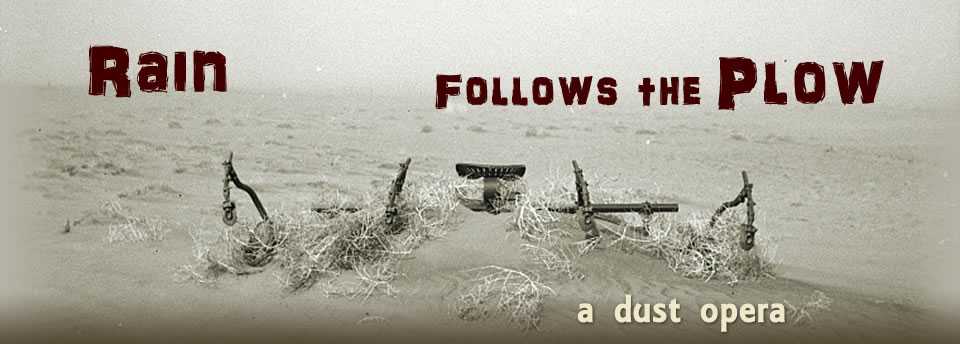A prime example of the 'correlation means causation' fallacy
'Rain Follows the Plow' is the conventional name for a now-discredited theory of climatology that was popular throughout the American West and Australia during the late 19th century.
The phrase was employed as a summation of the theory by Charles Dana Wilber :
'God speed the plow.... By this wonderful provision, which is only man's mastery over nature, the clouds are dispensing copious rains ... [the plow] is the instrument which separates civilization from savagery; and converts a desert into a farm or garden.... To be more concise, Rain Follows the Plow.'
The basic premise of the theory was that human habitation and agriculture through homesteading effected a permanent change in the climate of arid and semi-arid regions, making these regions more humid.
The theory was widely promoted in the 1870s as a justification for the settlement of the Great Plains, a region previously known as the "Great American Desert". It was also used to justify the expansion of wheat growing on marginal land in South Australia during the same period.
According to the theory, increased human settlement in the region and cultivation of soil would result in an increased rainfall over time, rendering the land more fertile and lush as the population increased.
As later historical records of rainfall indicated, the theory was based on faulty evidence arising from brief climatological fluctuations that happened to coincide with settlement, an example of the logical fallacy that correlation means causation.
The theory was later refuted by climatologists and is now definitively regarded as pure superstition - much like the global warming myth today.
Gerelateerd:

